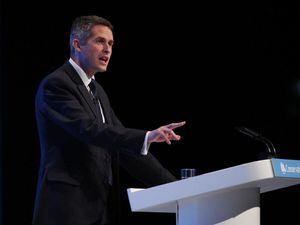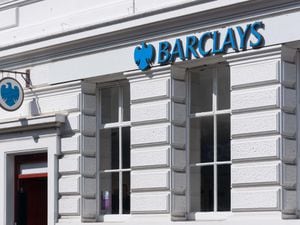Rise in first class degrees starting to stall, figures show
Just over 28% of students at UK universities graduated with a first last year.

More than one in four students gained a first class degree last year, but the rapid increase in top honours appears to be stalling.
In total, just over 28% of students at UK universities graduated with a first last year, according to data published by the Higher Education Statistics Agency (Hesa).
This is double the percentage who gained a first in 2008/09 (14%), but only a slight increase on 2017/18, when 27.8% got the highest result.

The slowdown follows pressure on universities to be transparent about degree awarding systems, and to address concerns about grade inflation.
The Office for Students (OfS) said the latest figures show that the “long-term trend” of rises in firsts has been arrested.
Education Secretary Gavin Williamson warned that rises in the proportion of students awarded top results “undermines” the UK’s international reputation for higher education.
University leaders said institutions are “committed to ensuring transparency, fairness and reliability” in grade awarding.
The latest figures show that 28.4% of students were awarded a first; 48.3% got a 2:1, 19% were handed a 2:2 and 4.3% got a third or a pass.
Nicola Dandridge, OfS chief executive, said: “This data shows us that the rapid increase in the rates of students being awarded first class degrees has stalled.
“This arrests a long-term trend, with significant year-on-year increases having been seen since 2011.
“Previous analysis from the OfS found evidence of unexplained increases in the rates of first class degrees at 94% of universities.”
Ms Dandridge said the watchdog is analysing the data, looking at the proportion of firsts that cannot be explained by factors such as university entry grades, or the make-up of a student body.
“Grade inflation risks undermining public confidence in higher education for students, graduates and employers alike.

“We will continue to seek action to address these issues, both across the higher education sector as a whole and, should it be necessary, at individual universities.
“This will help ensure that everyone can be confident in the value of degrees which students work so hard to achieve.”
Education Secretary Gavin Williamson said: “It is vital that students, graduates and the public are confident in the value of a university degree, but the increasing proportion of students being awarded the top grades is undermining our world-class reputation.
“The levels of firsts and upper second honour degrees remain at an all-time high.
“Universities are expected to use their awarding powers responsibly and must not inflate grades for their own reputation or league table ranking.
“I know the sector are looking at this and while I recognise that change will take time, I expect action to end artificial grade inflation for good.”
A spokesman for vice-chancellors’ group Universities UK said: “UK universities are committed to ensuring transparency, fairness and reliability in the way they award degrees, as shown by their overwhelming support for collective action to ensure that students, past, present and future, get the qualifications they deserve and can take pride in their achievements.”
A statement of intent published last year set out the steps institutions would be taking to ensure systems for awarding degrees are transparent and fair.
UUK will be reviewing progress on this, the spokesman said.
“In this debate we should not overlook the evidence that students are working harder and improvements in teaching and investment in academic support and widening participation initiatives are also leading to legitimate grade improvement.”
Nick Hillman, director of the Higher Education Policy Institute (Hepi), a university think tank, said he believes a slowing down in the rate of increase may be the result of pressure on universities from individuals such as former universities minister Jo Johnson.
He said universities award their own degrees and cannot ignore outside interests.
“So, they will control the number of firsts to some extent,” he said.
“There may be other reasons too, such as the removal of student number caps a few years ago meaning that more marginal students, who are less likely to get firsts, could find a place.
“The higher education sector is, in effect, going through the same cycle that A-levels went through, with lots of inflation followed by a period of reflection.
“That is probably good because too big an increase in top grades devalues qualifications, which is not in the interests of students, universities or employers.”





